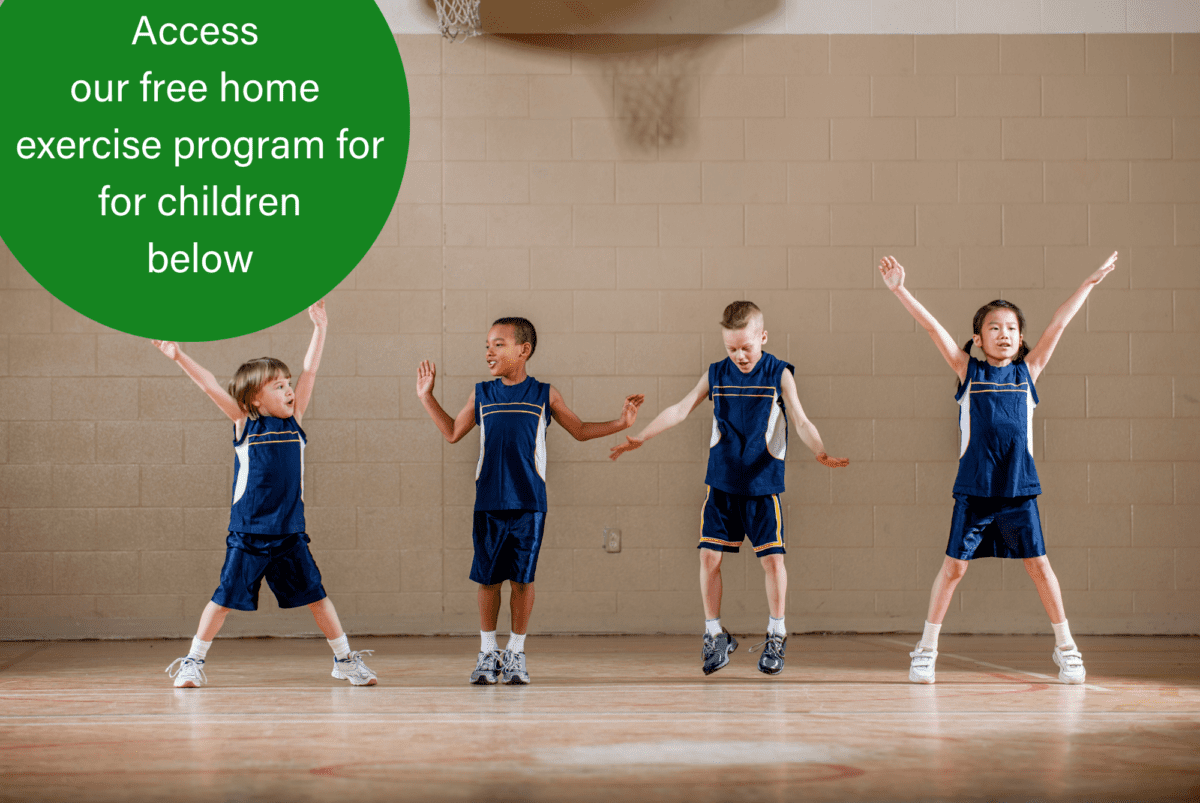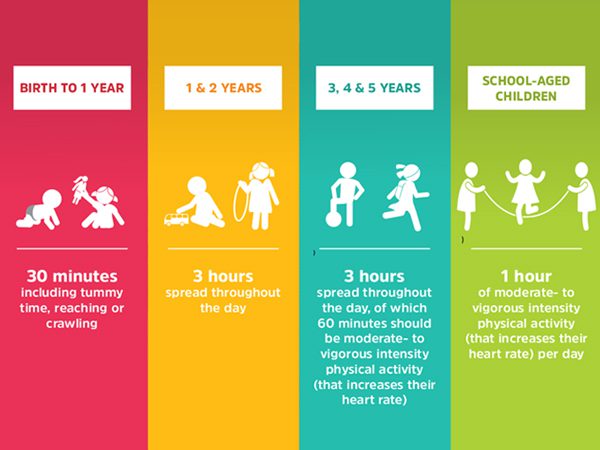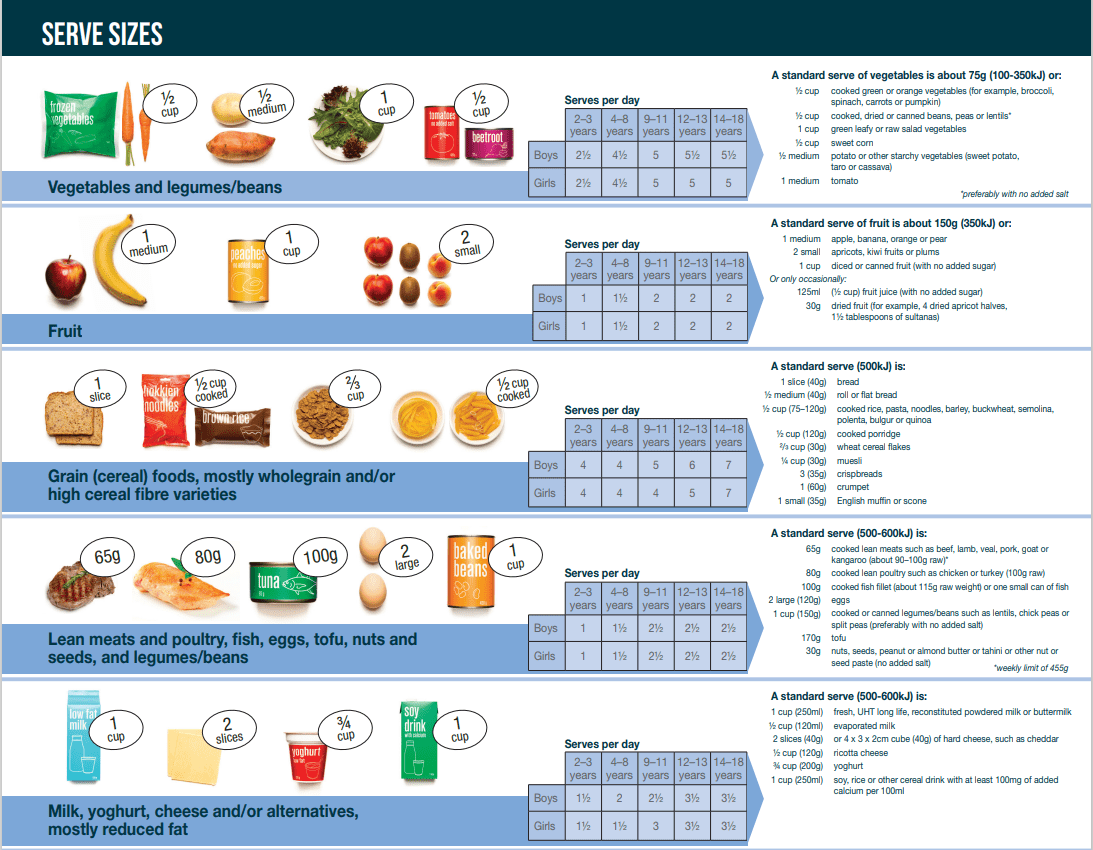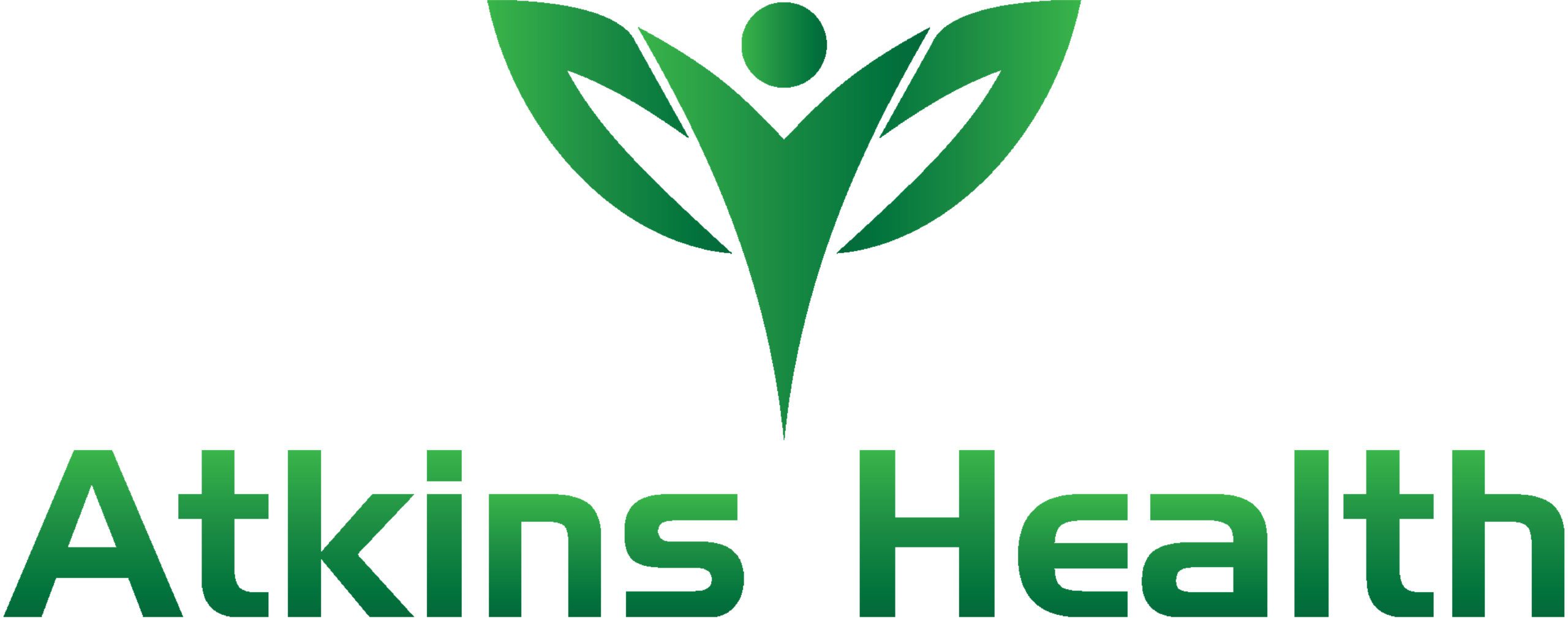Benefits of Exercise for Children

Best Exercise for Kids
Importance of Exercise for Children
- Increases fitness and endurance
- Builds a stronger heart, bones, and healthier muscles
- Improves gross and fine motor skills
- Providing an opportunity to socialise
- Increases concentration and focus
- Encourages healthy growth and development
- Improving self-esteem
- Psycho-social Development
- Improving posture and balance
We strongly encourage parents to serve as role models by participating in regular physical exercises with their children, as a family. Remember that exercise for kids should be fun! The best exercise for children will see them involved in sport or activities that have social, interactive, and fun aspects.

Reference: Sports Science
Following the nutritional guidelines alongside efficient physical activity yields the best possible outcomes.

Reference: Eat For Health
Exercise for Children with Disabilities
Children with an illness or a disability should be encouraged to exercise on a regular schedule and with supervision initially. The fitness program components do not change but the intensity, progression and choice of equipment may need to be modified. Good exercise programs are available for children with asthma, obesity and developmental special needs. You can visit an exercise physiologist for further information and programming to specially suit your child’s needs in a fun and safe manner.
Milestones in Child Development
How are your children tracking with their development? Here is a quick guide on what physical activity a child would typically be capable of achieving up to the age of seven.
BALANCE – Gross Motor Skill
- Static Balance ( standing on one foot) – 2/3 years (1-3 seconds), 3/4 years (up to 5 seconds), 5/6 years (10 seconds)
- Dynamic Balance ( hopping on one foot) – 2/3 years (1-3 hops), 3/4 years (2-5 hops), 5/6 years (10 hops)
- Walking across a balance beam – 4 years
- Balancing on an unstable surface – 7 years
BILATERAL COORDINATION – Mid-line/Bilateral Coordination Skill
- Jumping down – 2-3 years
- Stairs (One foot at a time) – 3 years
- Jumping up – 4/5 years
- Bipedal coordination – jumping forwards – 5 years
- Single arm figure 8’s – 7 years
- Opposite hand to knee taps – 7 years
VISUAL PERCEPTION – Ocular Motor Skills
- Eye tracking starts to develop before – 1 year
- Ball throwing Overarm – 2/3 years
- Ball catching using body – 3 years
- Ball catching, hands only – 5 years
If you are looking for a gym-based program, view our My Strong Kids program.


